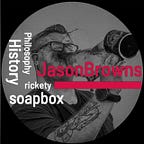Between thinking and doing
“There can be no understanding between the hand and the brain unless the heart acts as mediator.”
-Metropolis
In 1890 Fritz Lang was born in Vienna to Anton Lang an architect and construction company manager, and Pauline "Paula" Lang who was was Jewish but converted to Catholicism before Fritz was born.
After studying civil engineering and art at the Technical University of Vienna, Fritz travelled the world and studied painting in Paris expanding his artistic influences.
With the outbreak of World War I, he inlisted for service with the Austrian military; he fought in Russia and Romania and was wounded three times losing sight in one eye.
After the war, he spent a short time writing screenplays at Berlin-based production company Decla; after which he became a director at the Ufa and Nero-Film studios during the growth of the Expressionist movement. It was at this time his skill in merging mainstream styles with more high-art concepts developed.
In 1920, Fritz Lang met writer and actress Thea von Harbou. He later married her. They collaborated in writing Lang’s movies and together produced some of his greatest movies. It was also at this time Fritz developed the style now known as film noir.
As well as the dark paranoid style of noir Lang’s Roman Catholic childhood led to the insertion of strong religious themes in his films. This began to cause tension between him and his wife Thea, who was moving quickly towards fascism.
These tensions are evident in the sci-fi epic "Metropolis". The film was written by Thea, based on her book by the same name. She had written it with clear fascist undertones but because of Catholic mortality concepts inserted by Fritz, it mutated into an almost communist themed film. This ambiguity both excited and frightened the future nazi party who later edited the film "for length".
As the Nazis came to power, however, Fritz was concerned his Jewish roots would become a genuine threat to his safety. In 1933 film "The Testament of Dr Mabuse" was banned by the Nazis due to anti-nazi messages hidden in the film.
At the same time, Propaganda Minister Joseph Goebbels, a huge fan of Lang's movie Die Nibelungen, offered him the job as head of the German Cinema Institute. He was certainly expected to make propaganda films.
Not wanting the job and having unreconcilable differences with Thea he abandoned her and fled the country, eventually arriving in the U.S.
While Fritz may not have written the quote from metropolis, he lived it. You would think it obvious why he refused to stay behind and take the job offered by Goebbels, but with his catholic upbringing, his Jewish roots may have escaped detection. He would have had unique power in the Nazi party but that same Catholic upbringing and his heart would not let him stay.
When living your life you will have many hard decisions to make. It may be tempting to just use your head and decide based on what is just best for you. But before you put those decisions into effect pass them through your heart and decide if they are also right for others that may be affected.
-Jason Brown
